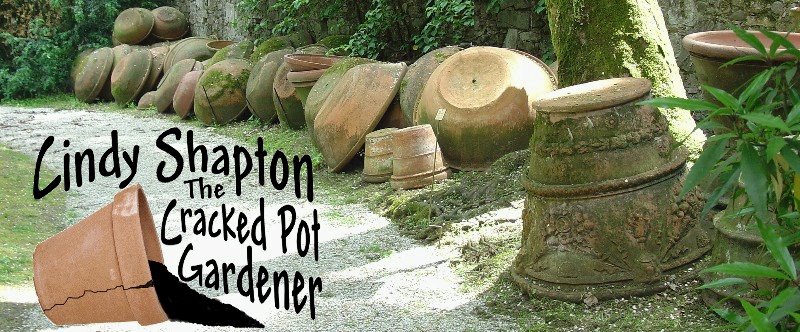 Pictured above: Annise hyssop with lavender spikes growing in perennial bed (Agastache foeniculum 'golden jubilee' - named for it's golden leaves)
Pictured above: Annise hyssop with lavender spikes growing in perennial bed (Agastache foeniculum 'golden jubilee' - named for it's golden leaves)Anise hyssop, Agastache foeniculum, was planted by beekeepers in the 1870s here in the states to attract honeybees. Anise hyssop grows 3 - 4 feet tall and produces a rich source of nectar that is thought to give honey a bit of a anise-seed flavor.
Anise hyssop may be called lots of names like licorice mint, have different color variations in bloom spikes or leaf which doesn't matter as long as the name starts with Agastache foeniculum...
Although this plant is considered perennial, I've noticed that it does well for a couple of years then is 'iffy' after that. I tend to shake the seeds from the spent blooms in early fall to be sure the plant(s) re-seeds itself. If planting in mass, I would hope they would volunteer (re-seed) naturally to keep crop going but may have to continually add seed each year to insure good coverage.
The pinkish-bluish-purple blossoms (or white if an 'Alba' variety) last for about 6 - 8 weeks and the plant tends to be drought resistant which is always a plus when the rains decide to shut off in August! Give Anise hyssop full sun and good drainage and it will perform well even if the soil is poor. Other than some added compost for organic matter, no fertilizer is necessary.
 Hyssop, Hyssop officinalis
Hyssop, Hyssop officinalisHyssop, hyssop officinalis is a woody perennial that again does well here (Middle TN) for a year or two than wanes. I will layer this plant by bending a branch over and pinning it to the soil with a re-bent paper clip to start new plants so when the mother plant fades a new hyssop is ready to take it's place.
Although Hyssop officinalis does attract bees, the length of bloom is not as long as Anise hyssop. Sometimes this plant will re-bloom if the flower spikes are cut back shortly after they have faded.
I would not recommend Hyssop officinalis for any kind of mass planting. It is harder to seed (really need to start in greenhouse) and needs more water considerations.
Try thyme or lemon balm in place of hyssop officinalis if you want other herbs to attract bees. There are many varieties of thyme. By planting a variety the overall bloom time will be longer which is a good thing if you are trying to attract bees.
Lemon balm, Melissa officinalis is Greek for bee and has long been used by beekeepers to attract bees.


4 comments:
hey your blog design is very nice, neat and fresh and with updated content, make people feel peace and I always like browsing your site.
- Norman
ha, I am going to experiment my thought, your post give me some good ideas, it's really amazing, thanks.
- Thomas
Thanks for your comment Thomas, glad it gave you some good ideas - please update and let us know how they work :)
Post a Comment